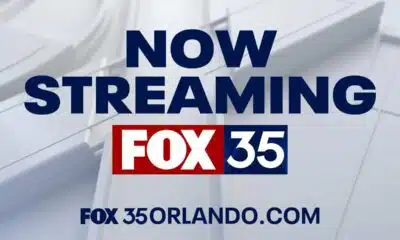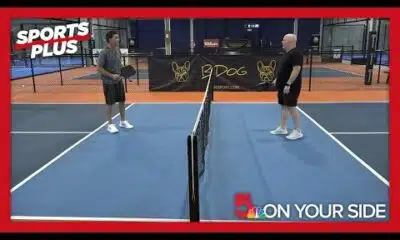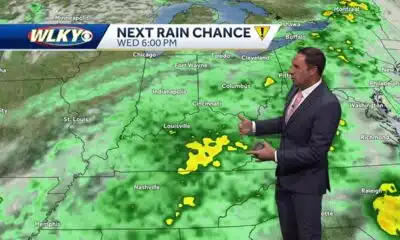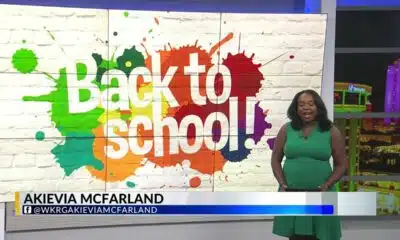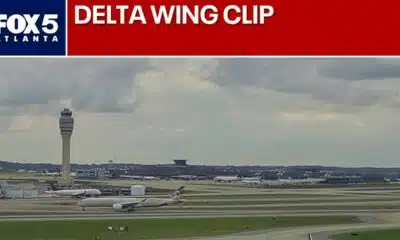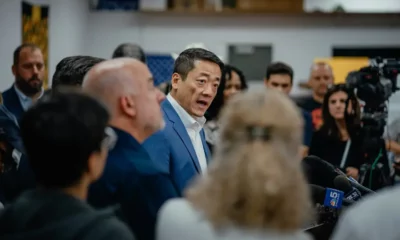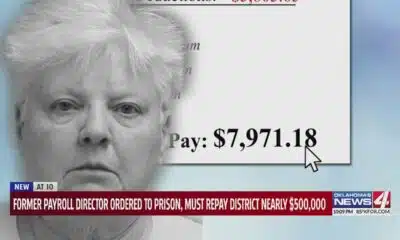News from the South - North Carolina News Feed
Universities firings raise ethical concerns about undercover videos
A series of four videos over nearly four weeks have shown University of North Carolina System employees professing the continuation of DEI initiatives in their respective universities despite the system’s policies against such programs, the latest being out of UNC Wilmington.
But undercover reporters and freelancers recorded the videos, without introducing themselves as members of the press or announcing that they were recording the conversations. A group calling itself Accuracy in Media published the videos.
Since videos of administrators at UNC Charlotte, UNC Asheville and Western Carolina University have been released, the universities have each announced that the individuals are no longer employed. UNC Wilmington said last week that the employees’ actions are under review.
[Subscribe for FREE to Carolina Public Press’ alerts and weekend roundup newsletters]
Accuracy in Media is a conservative watchdog organization, which says it uses “investigative journalism and citizen-led activism to expose government corruption, public policy failures and radical activists,” according to its website. It frequently publishes undercover investigations filmed with hidden cameras.
While making such undercover recordings appears to be legal in North Carolina, experts question the ethics of a supposed journalistic outlet using undercover methods.
Carolina Public Press asked Accuracy in Media last week about whether the organization had worked with anyone tied to the state’s university system in advance of gathering these videos, but the organization did not respond to that question prior to publication. Shortly after initial publication, the organization responded, “AIM did not work with the Universities prior to the investigations.”
In response to further questions from CPP about the timing of communications between the organization and other parties, AIM said, “Since the videos have been released, Accuracy in Media activists have sent 4,806 emails to the trustees. However, we have not had private communications with any trustee or legislator.”
Legally sound
On whether undercover journalists secretly recording is legal, media lawyer Mike Tadych told Carolina Public Press simply, “I don’t think that it’s illegal.” It’s important to consider whether the subject of undercover reporting has a reasonable expectation of privacy, he said.
“If you went into someone’s home pretending to be a general contractor and you’re not … and you engage them in a conversation, and it demonstrates that they’re racist and then you expose that, well, you would have lied to get into their house, so I think that expectation of privacy issue comes up,” Tadych said.
But in the case of the former employees at the universities, their positions as employees of public universities and the videos being filmed on public campuses lower the expectation of privacy, he said.
The landmark case Food Lion, Inc. v. Capital Cities/ABC, Inc. has long been a point of reference for investigative journalists. Two ABC News producers submitted applications to North and South Carolina Food Lion grocery stores with false references and misrepresented education and employment history and ultimately became employed at the stores in 1992.
Their use of hidden cameras while working at Food Lion enabled them to run a story on ABC’s PrimeTime Live alleging unsafe and unhealthy practices in the store’s deli. Food Lion sued the network in Greensboro’s federal court alleging fraud, breach of the duty of loyalty, trespass and unfair trade practices. The jury found ABC liable for fraud, trespass and disloyalty.
After both ABC and Food Lion appealed the outcome to the U.S. Court of Appeals in Richmond, Virginia, it upheld the breach of loyalty and trespass claims but denied ABC committed fraud, which was largely considered a win for press freedom.
Tadych said media lawyers often reference this case to help journalists determine whether undercover reporting is a risk worth taking, as well as assessing the four invasion of privacy torts — appropriation of name or likeness, public disclosure of private facts, false light and intrusion upon seclusion. In this scenario, Tadych doesn’t see a clear legal path to claiming Accuracy in Media invaded the employees’ privacy.
“Is it actionable in a sense that there’s an invasion of privacy? I think it would be a very difficult claim, based on my knowledge of that area of law,” Tadych said.
“We do not have two of the four invasion of privacy torts. We do not have false light and we do not have publication of true but embarrassing private facts, and the other two are basically misappropriation.”
Ethical questions about universities videos
While the method of obtaining the videos of the employees at each of the universities appears to be in good legal standing, media experts raised concerns about the ethics of undercover reporting.
“Accuracy in Media’s conduct may be legally acceptable; it seems like it probably doesn’t violate the law, though you may see people arguing otherwise,” said Evan Ringel, a communication law and journalism ethics professor at Appalachian State University. “There is an argument that it violates traditional principles of journalism ethics.”
What’s legal may not necessarily be ethical and vice versa, Ringel said. He referred to the Society of Professional Journalists’ Code of Ethics, which gives four ethical principles for journalists to consider: seek truth and report it, minimize harm, act independently and be accountable and transparent.
There could be an argument that AIM violated one or more of these principles, particularly considering the employees who lost their jobs as a result of the videos, he said.
“There is very much an argument that that is not minimizing harm,” Ringel said. “There’s a counterargument, of course, but it’s at least an open question.”
Eric Deggans, a member of the National Advisory Board for the Poynter Institute for Media Studies and the Knight Chair in Journalism and Media Ethics at Washington and Lee University, said making ethical decisions as a journalist often means weighing risks.
“You have to ask yourself, is the damage that you’re going to do to your credibility as a reporter by misleading sources you’re reporting on, is it worth it for whatever it is you’re going to learn or report?” Deggans said.
“From my standpoint, as somebody who’s been a journalist for 30 years, there are very few things that would rise to that standard where it would be worth damaging my credibility as a journalist in order to get access to learn something. And I feel like a lot of times, the things that are learned can be learned through ethical reporting.”
In an era where journalists already struggle to gain and maintain the public’s trust, reporters who mislead sources will only hurt the cause, Deggans said. It can also cause confusion for those who don’t have an understanding of how journalists tend to do their jobs.
“The people who don’t know much about journalism will assume that journalists mislead sources all the time, and they might be suspicious when a journalist comes to them,” he said.
President of Accuracy in Media Adam Guillette told Carolina Public Press AIM’s style of hidden camera journalism is essential to its investigative work.
“Undercover, hidden camera, investigative journalism is by far the most honest, accurate and ethical form of journalism,” Guillette said. “It’s essential for when you’re going to expose people who are breaking rules and breaking laws.”
He cited the use of anonymous sources and written quotes, which he said can be used to make up sources or take quotes out of context unbeknownst to the reader. AIM’s videos are longer and thus provide greater context than local television and print media, he said.
Critics sometimes describe AIM’s strategies as “gotcha journalism,” an interviewing method intended to elicit statements that could be damaging to the interviewee’s image.
When asked about this criticism, Guillette said journalists often complain about AIM’s methods but don’t contact them for comment, leading to one-sided stories. Although he later said AIM always seeks to uphold ethical standards.
“We always adhere to the law, and certainly it’s our goal to make sure that every video presents the subjects in the most honest, appropriate context,” Guillette said.
“Unlike, unfortunately, many people in the media today, we don’t quote people out of context. We don’t want to do gotcha journalism. We exist to provide journalism that’s much better than what we see from many mainstream outlets.”
Ringel and Deggans both pointed out that the journalism industry does not have a licensing system or ethics board to determine when journalists behave ethically or who is considered a journalist at all.
While this helps maintain a free press, the lines can get blurred on what is considered good practice or a good journalist. That also appears to apply to these undercover videos involving the universities.
“Anyone should be free to practice journalism if they choose to try it,” Deggans said. “But that also means that the audience has to be careful about who they trust and about what kind of reporting they consume and how much credibility they give to it.”
Editor’s note: This article has been updated twice after initial publication to include responses from the Accuracy in Media group.
This article first appeared on Carolina Public Press and is republished here under a Creative Commons Attribution-NoDerivatives 4.0 International License.
The post Universities firings raise ethical concerns about undercover videos appeared first on carolinapublicpress.org
Note: The following A.I. based commentary is not part of the original article, reproduced above, but is offered in the hopes that it will promote greater media literacy and critical thinking, by making any potential bias more visible to the reader –Staff Editor.
Political Bias Rating: Center-Right
This article presents information on a controversy involving DEI initiatives at public universities and undercover investigations by Accuracy in Media, a known conservative watchdog group. The coverage provides context about the legal and ethical concerns of undercover journalism, including critiques from media ethics experts, while also giving space for AIM’s defense. However, the inclusion of details about AIM’s conservative lean, the framing of the DEI programs as contentious, and the emphasis on the legality and ethics of undercover conservative-style watchdog journalism points to a center-right perspective. The article is largely informative but subtly frames the issue with a conservative-leaning outlook by giving prominence to AIM and portraying its methods as essential and principled investigative journalism.
News from the South - North Carolina News Feed
Body of missing NC teen found in Florida, family says
SUMMARY: The body of missing North Carolina teen Gio Gio was found in Bradenton, Florida, confirmed by his family. Originally, Gio Gio was supposed to be picked up by relatives after meeting cousins in Florida, but he disappeared after texting his mother for help. His family’s private investigators, not the police, discovered his body near I-75 after police had initially searched the area. Gio Gio’s mother expressed her heartbreak on Facebook, calling it every parent’s worst nightmare. The investigation continues, focusing on the timeline after Gio Gio entered the car with his cousins. An autopsy is pending, with no immediate signs of foul play.
The body of Giovanni Pelletier was found in a retention pond, authorities said, and his mom is living “every parent’s worst nightmare.”
https://abc11.com/post/giovanni-pelletier-body-missing-18-year-old-north-carolina-found-pond-where-last-seen-family-says/17483056/
Download: https://abc11.com/apps/
Like us on Facebook: https://www.facebook.com/ABC11/
Instagram: https://www.instagram.com/abc11_wtvd/
Threads: https://www.threads.net/@abc11_wtvd
TIKTOK: https://www.tiktok.com/@abc11_eyewitnessnews
X: https://x.com/ABC11_WTVD
News from the South - North Carolina News Feed
‘Highballed’: Data shows tax assessment inequalities affecting longtime homeowners
SUMMARY: Longtime homeowners in historically Black neighborhoods like Hillsborough face disproportionate property tax burdens compared to wealthier, mostly white areas nearby. Beverly Walton, a 66-year resident of Renshaw Street, inherited her home but struggles to afford rising taxes despite no renovations. Her house, valued lower than newer homes, is taxed at a higher rate, leading to financial strain on fixed incomes. Data from Wake, Durham, and Orange counties reveal majority nonwhite neighborhoods pay about $9 more per $100,000 in home value, despite lower average home prices. Advocates call for fairer assessments to prevent pricing out longtime residents amid regional growth.
Data shows tax assessment inequalities affecting longtime homeowners
https://abc11.com/post/highballed-data-shows-tax-assessment-inequalities-affecting-longtime-homeowners/17473973/
Download: https://abc11.com/apps/
Like us on Facebook: https://www.facebook.com/ABC11/
Instagram: https://www.instagram.com/abc11_wtvd/
Threads: https://www.threads.net/@abc11_wtvd
TIKTOK: https://www.tiktok.com/@abc11_eyewitnessnews
News from the South - North Carolina News Feed
Two deaths, sinkholes, downed trees: The impacts of severe flooding in Triangle
SUMMARY: Severe flooding in the Triangle region has caused two deaths, sinkholes, and downed trees. In Nash County, 55-year-old Raymond Evans Jr. and 24-year-old Lahie Alustin died after their minivan was swept into a ravine. Evans heroically tried to save Alustin after police efforts failed. A memorial has grown at the site. In Apex, heavy rain caused a sinkhole on Olive Chapel Road, collapsing a section already slated for repairs. Town officials are working with the Department of Transportation to expedite repairs, possibly earlier than the initially expected November timeline. Residents face detours and ongoing disruptions.
WRAL is tracking the impact of severe flooding that occurred all through Wednesday. Rain will continue on-and-off on Thursday, and it could be heavy at times.
-
Mississippi Today7 days ago
After 30 years in prison, Mississippi woman dies from cancer she says was preventable
-
News from the South - Texas News Feed7 days ago
Texas redistricting: What to know about Dems’ quorum break
-
News from the South - North Carolina News Feed5 days ago
Two people unaccounted for in Spring Lake after flash flooding
-
Mississippi Today6 days ago
Brain drain: Mother understands her daughters’ decisions to leave Mississippi
-
News from the South - Oklahoma News Feed2 days ago
Former payroll director ordered to prison, must repay district nearly $500,000
-
News from the South - Georgia News Feed6 days ago
29-year-old killed after driving off road in 'dangerous' section road | FOX 5 News
-
News from the South - Louisiana News Feed7 days ago
Plans for Northside library up for first vote – The Current
-
News from the South - Tennessee News Feed4 days ago
Trump’s new tariffs take effect. Here’s how Tennesseans could be impacted



